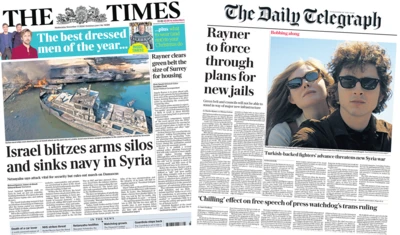We've updated our Privacy and Cookies Policy
We've made some important changes to our Privacy and Cookies Policy and we want you to know what this means for you and your data.
Leo Varadkar warns Irish instability could impact EU trade deal
Leo Varadkar has warned difficulties in forming a government in the Republic of Ireland could directly impact Britain's post-Brexit trade deal.
A general election is due to take place in the Republic on 8 February.
Speaking on the ґуПуґ«ГЅ's Andrew Marr Show, the Irish prime minister said it was "all to play for" after several polls put the major parties "neck and neck".
He added that he called the election so a government could be in place before the European Council meeting in March.
At the meeting, Fine Gael's Phil Hogan will be leading the trade negotiations as the EU's commissioner for trade.
"I know that's something the Irish people will reflect on when they go to the polls at the weekend - the need to have a stable government - because that's essential to our future in so many ways," the taoiseach said.
The Fine Gael leader reiterated his party's position that they would rule out a coalition with Sinn FГ©in. He said the party was "soft on crime and high on tax" which would be "enormously dangerous for the Irish economy".
Mr Varadkar said any future deals between the EU and the UK must "start off on better footing than maybe was the case after the referendum".
His warning comes as it is revealed that Boris Johnson is to say he will not accept alignment with EU rules when Britain negotiates a trade deal with Brussels.
Image source, Getty Images
The prime minister will use a speech on Monday to toughen his stance ahead of trade talks following the UK's formal withdrawal from the bloc.
Mr Varadkar said he "learned a lot, dealing with Brexit and two different prime ministers".
"Let's not repeat some the errors that were made in the first two-and-a-half years, let's not set such rigid red lines that it makes it hard to come to an agreement and let's tone down the nationalistic rhetoric.
"We all want the UK and the EU to have a close relationship - a political relationship, a security relationship and a trading relationship.
"I don't believe the UK is going to try to engage in a race to the bottom on issues like pay and workers' rights but if that is the case, why is there a problem writing that into law, into an international treaty so we all have that assurance?"
Top Stories
More to explore
Most read
Content is not available








